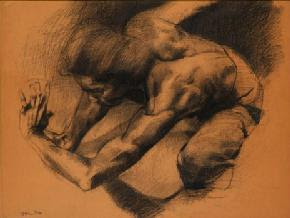
The headline: 'Make history compulsory subject in primary schools'
The sentence that piqued my interest was this one: Abdullah also suggested making history a more exciting subject for students.
History not exciting enough? My, my …
It has been a while since I read a History textbook, but my recollections is that they do veer on the side of being dry and, most might say, unexciting.
However..
Two World Wars costing millions in lost lives and the birth of a most horrific weapon of mass destruction, Empires born, bloomed, crushed and forgotten, birthing of major religions, cult-like personalities, mythical tales of bravery and sacrifice etcetera etcetera, history should be anything but unexciting.
It is an undeniable fact that from within the mass of “dry facts” birthed a good number of thought provoking, let’s say, by-products (for want of a better word).
Take the Malaysian history, for example.
It may not be as old as that of the world’s – our version of an “Empire” was only born in the 15th century – but the has had its fair share of tumultuous events, future-defining moments, bravery and dramatic sacrifices.
We have played to death the saga of Hang Tuah and Hang Jebat(from (Hikayat Hang Tuah), figures steeped in myth but born from our chequered history in the Malacca Sultanate (1402 – 1511)

I cannot remember which version of Hang Tuah I read all those years ago but a particular segment that remained in my mind is the part where the two friends had to have their climatic duel on trays (dulang) to avoid the many spears being poked into the floor by hose witnessing the battle (was it at an istana?)
The tale of Hang Tuah and Hang Jebat was a tragedy for me. A friendship torn asunder by scheming politicos and an absolute Ruler whose ideals were far less than perfect.
Elsewhere and elsewhen, the novel by Leon Marcus Uris (1924 – 2003) Mila 18 takes us to the atrocities committed on Polish Jews in spining a tale of gallantry of its hero, former army officer Andrei Androfski, in the face of overwhelming odds and set in World War II (1939 – 1945).
The novel written in 1961 played out like a long-drawn movie and was extremely heavy reading material for someone barely in his teen back then.
A scene I can still recall is where the one of the main character – a Christopher De Monti – reluctantly parts company with his lover, a Deborah Bronksi who is incidentally Andrei’s sister and the wife of a Paul Bronski, a Jewish who hates being one, just pages before all hell broke loose with the invasion of Poland by the Germans.
Going further back in time is another novel – a two parter, the first of which I cannot trace its whereabouts – by Robert Joseph Shea (1933 - 1994) entitled Shike which centers on the love journey of its main characters Jebu, a Zinja (don’t ask) monk and Shima Taniko, a noble princess, amidst warring fued between Japanese Warlords, and in the second volume – a Mongolian invasion of the Land of the Rising Sun.
Facts and fictions intertwined seamless in all three that takes leaves from moments in the world’s history burnished into the memorable tales that they are.
All three are also steep in commentaries – some subtle, most not – of events, cultures, human frailties, allegiance, love, friendship – things that makes life what it is.
In fact, there are many, many more examples.
Unexciting?
Perhaps the facts are stuck in the textbooks and had ventured no further.
1 comment:
Salam Hafeez,
History can be made fun through theater or drama. teachers should encourage students to perhaps write their own scripts on any particular historical events and make a play out of it.
Bukan semua suka baca dan hafal segala fakta dan tarikh terjadinya sesuatu sejarah ;)
ohh .. hikayat hang tuah is always a favourite.
hasnita
Post a Comment